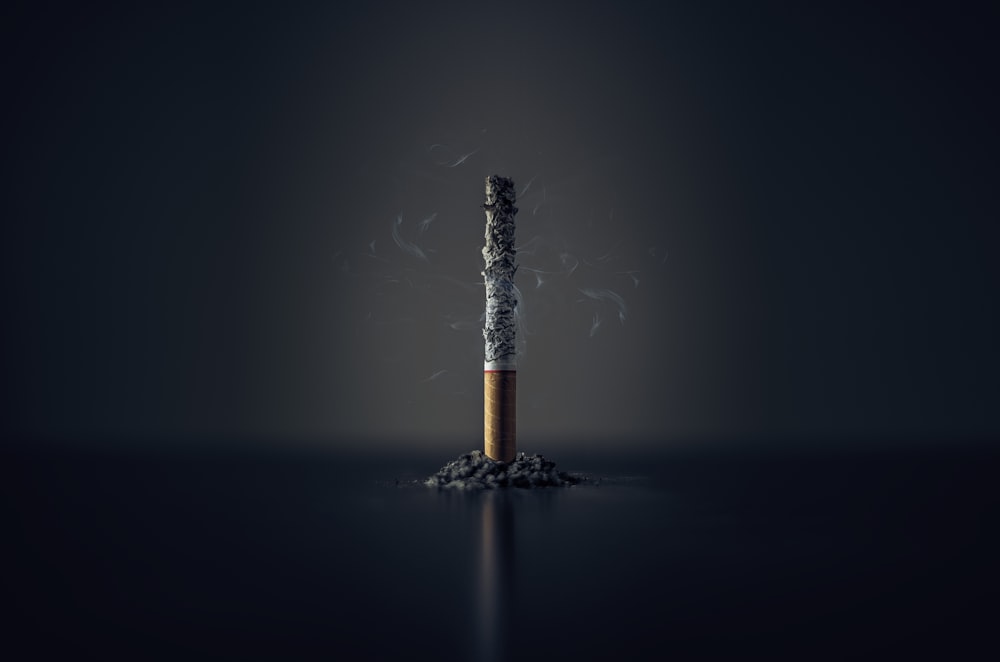The unreasonable and persistent belief that people are “out to get you” or that you are the focus of constant, invasive scrutiny from others is called paranoia. This irrational distrust of others can make it difficult for a person suffering from paranoia to operate socially or maintain intimate relationships.
Many disorders, including paranoid personality disorder, delusional (paranoid) disorder, and schizophrenia, can cause paranoia. Although the exact etiology of paranoia is uncertain, genetics will likely be a factor. The type of treatment depends on the disease being treated and may involve either medication or counseling.
Table of Contents
Consider Giving Up Cigarettes
Smokers often reach for a cigarette during paranoid situations. Smoking a cigarette when you’re paranoid, like drinking alcohol, is a quick solution that may aggravate paranoia over time.
According to research, the younger you start smoking, the greater your chance of getting an anxiety illness later in life. Cigarette smoke may also alter anxiety-related pathways in the brain due to nicotine and other chemicals.
If you want to quit smoking, several options are available. The Centers for Disease Control and Prevention (CDC) says substituting toothpicks for cigarettes. To establish a space that supports your smoke-free lifestyle, you might also adopt behaviors that may distract you. Additionally, you could create a strategy with the help of a support network that can offer everything from motivation to diversions.
Also, why not try a THC vape? It may help take the edge off while calming your nerves from the paranoia. Just make sure not to go overboard with vaping THC since it can make paranoia worse.
Regular Exercise May Significantly Improve Your Mental Health
According to a 2013 study, people with anxiety disorders who reported engaging in many physical exercises were better able to stave off the onset of anxiety symptoms. There are several potential causes for this. Engaging in physical activity might draw your focus from an anxious-inducing situation. Moreover, increasing your heart rate promotes anti-anxiety neurochemicals like:
- Serotonin
- Endocannabinoids
- Gamma-aminobutyric acid (GABA)
- Brain-derived neurotrophic factor (BDNF)
The American Psychological Association (APA) claims that regular exercise improves focus and willpower, which helps lessen some anxiety symptoms. The kind of exercise you do is essentially a matter of personal taste. Running or a high-intensity interval training (HIIT) class is your best bet if you want to raise your heart rate.
Reduce Your Caffeine Consumption
Caffeine is not your ally if you experience paranoia. Caffeine might induce uneasiness and jitters, which aren’t helpful if you’re stressed. According to studies, caffeine may lead to or worsen anxiety symptoms. It may cause panic attacks in those who have panic disorder. Caffeine withdrawal can significantly alleviate anxiety symptoms in some people.
Due to caffeine’s capacity to change brain chemistry, it is common to associate caffeine with anxiety, much like alcohol. According to a 2008 study, caffeine boosts alertness by inhibiting the brain chemical adenosine, which is responsible for fatigue, while simultaneously inducing the release of adrenalin.
All things considered, most people may safely consume a modest amount of caffeine. You should gradually reduce caffeine intake if you wish to reduce or stop consuming it altogether.
To satisfy desire, start substituting these coffees with water. This will not only satiate your body’s thirst for fluid but also assist drain caffeine from your system and keep you hydrated. To break the habit without experiencing withdrawal symptoms, you can gradually cut back on caffeine over a few weeks.
Avoid Alcohol
Since alcohol is a sedative, it could initially take the edge off. However, evidence indicates a relationship between anxiety and alcohol intake, with anxiety disorders and alcohol use disorder (AUD) coexisting.
A 2017 assessment of 63 distinct research found that reducing alcohol consumption can help anxiety and sadness. Excessive drinking can disrupt the equilibrium of neurotransmitters, which is crucial for good mental health. This disruption creates an imbalance, which might lead to paranoia symptoms.
Paranoia may temporarily decrease early sobriety but can improve in the long run. Alcohol has also been proven to interfere with sleep homeostasis, which disrupts your body’s natural capacity to sleep. Getting enough sleep is highly beneficial for dealing with paranoia.
Take Chamomile Tea
A cup of chamomile tea is a traditional home cure for calming frazzled nerves and promoting sleep. According to a 2014 study, chamomile may be a potent companion in the battle against GAD.
Compared to individuals who received a placebo, the study indicated that those who took German chamomile capsules (220 mg up to 5 times daily) saw a higher decrease in test results that evaluated anxiety symptoms.
In a different 2005 study, it was shown that chamomile extract promoted sleep in rats that had sleep disturbances. Researchers think the tea’s ability to connect to benzodiazepine receptors and exert hypnotic effects similar to benzodiazepines may make it act like a benzodiazepine.
Meditation and Mindfulness Exercises
Meditation’s fundamental purpose is to achieve complete awareness of the present moment, which involves recognizing all thoughts nonjudgmentally. This can lead to serenity and contentment by consciously improving your ability to consciously accept all thoughts and feelings.
In CBT, meditation is a key component that reduces stress and anxiety. According to research by John Hopkins, 30 minutes of daily meditation may relieve some anxiety symptoms and work as an antidepressant.
Final Thoughts
If you’re feeling paranoid, the suggestions above may help you relax. Remember that while home remedies might help relieve paranoia, they cannot substitute a professional care. Increased paranoia may necessitate counseling or medication. Discuss your concerns with your doctor.



